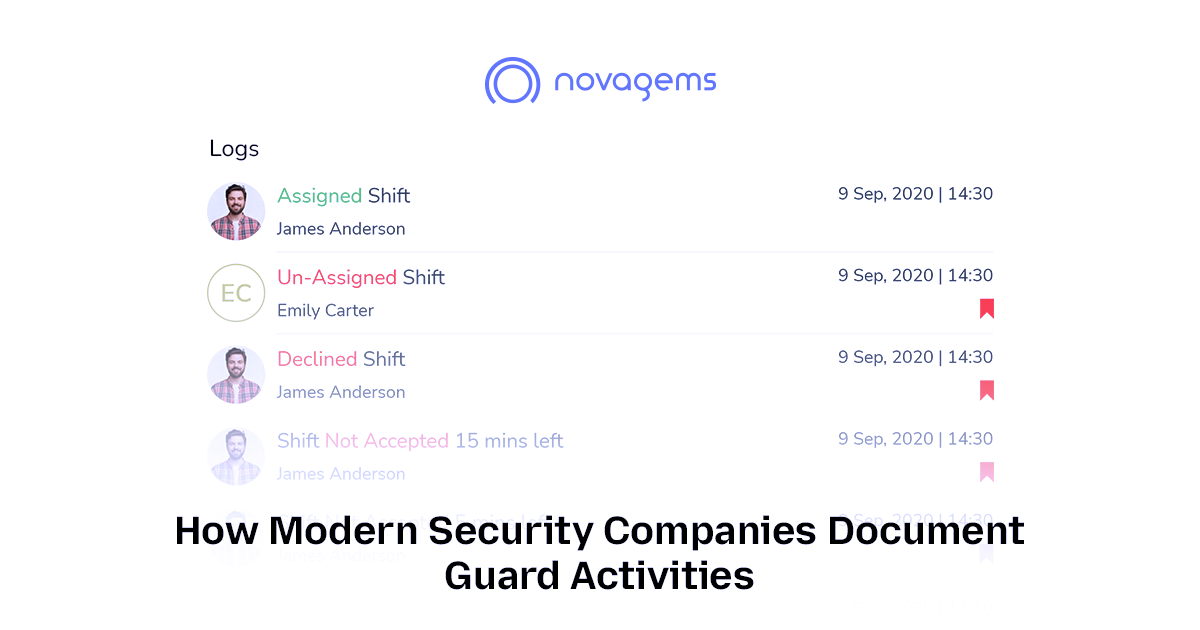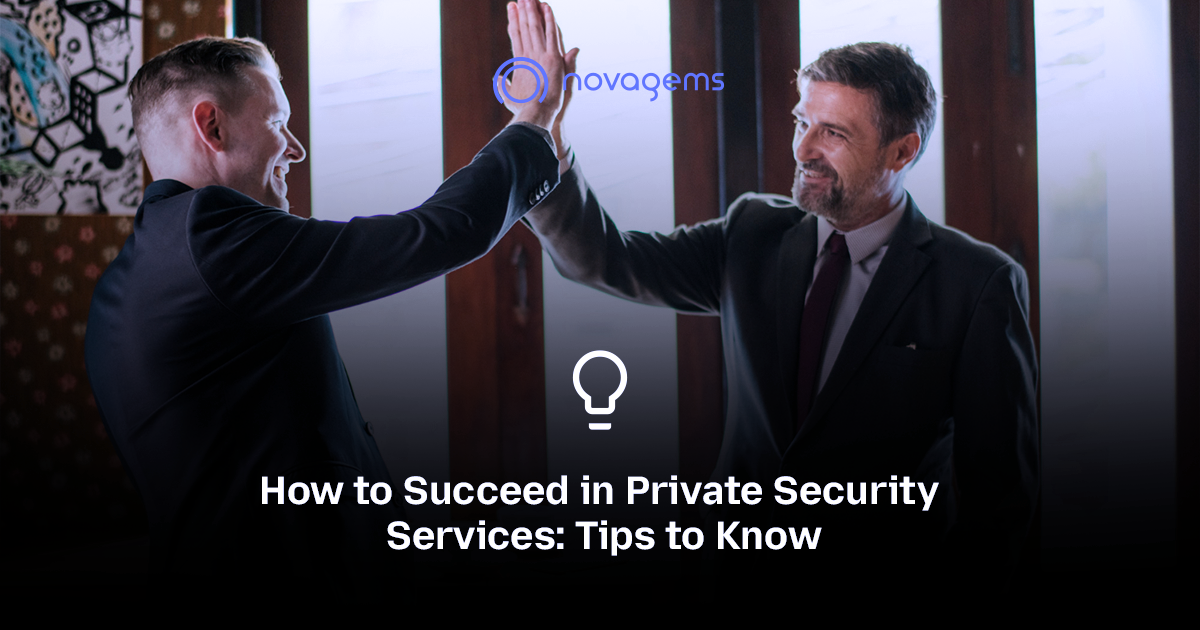Best Tools and Equipment for Security Guards
Published on: Sat, Jun 22, 2024
Read in 14 minutes
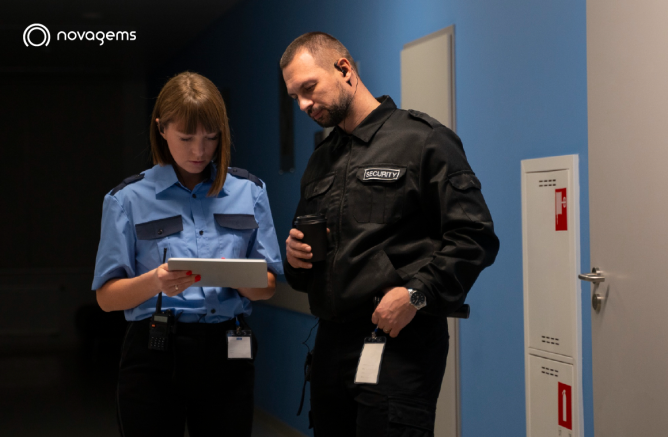
Equipping guards with the best tools for security guards is critical to maintaining safety and professionalism on the job. Whether it’s a tactical flashlight, a sturdy duty belt, or a real-time GPS patrol tracking app, these tools improve a guard’s ability to respond quickly and confidently.
Key Takeaways
- A well-equipped officer looks professional and is taken seriously by clients.
- Body-worn cameras increase accountability and reduce false claims.
- Stab-resistant vests provide life-saving protection in high-risk environments.
- A smart duty belt layout ensures quick access to tools when seconds matter.
The private security industry is growing fast, with the global market expected to hit $78 billion by 2030, and North America leading the charge. This rapid growth brings higher standards from clients, who now expect digital reports, real-time updates, and visible preparedness from officers.
What clients demand:
- Guards who look well-equipped and mission-ready
- Real-time reporting using cloud-based patrol tools
- Visual accountability through GPS and video logs
Security guard services are essential for maintaining safety and order in various environments, from corporate buildings to public events. Security guards need to be equipped with the right tools to perform their duties effectively. Security guards provide their services to both private and government sectors. They can perform their duties while being in one place or even by patrolling the ground.
It all depends on the type of roles they need to deliver. With the changing world, the role of security guards has become more important. They need to protect people, assets, and property. Did you know that security guards need to have number of tools and equipment that will help them be more efficient? If you have just started your own security company, you might not be aware of such requirements. But worry not, we have prepared just the list for you.
Using the right security guard equipment is not just a matter of convenience—it’s essential for safety, authority, and effective performance on the job. In this updated guide, we’ll look closely at the best gear for security guards, why it matters, and how to maintain it.
This blog will provide an in-depth look at the essential equipment that security guards use, making sure they are prepared for any situation.
What Type of Equipment Do Security Guards Use?
Security guards use a wide range of tools and equipment to ensure their safety and the safety of others. The equipment they use helps them perform their tasks efficiently and handle any potential threats or emergencies. This equipment includes communication devices, defensive tools, and personal protective gear. Now with the advancement in technology, there are many security guard management software that will help them too! These softwares helps them perform their tasks better and the management can manage the team properly. If a client is feeling secure and happy with your services, you will become their first choice. With this, you can win more security contracts and make profits.
Equipment Should Match the Assignment Type
Not all guards need the same equipment. A detailed guard gear checklist ensures each officer is outfitted based on their role—whether they’re managing hospital access control, patrolling parking lots, or working a public event.
Examples:
- Unarmed guard essentials: flashlight, radio, pepper spray, ID badge
- Event guards: metal detector wands, radios, high-vis vests
- Mobile patrol guards: backup batteries, first aid kits, tire tools
- Healthcare guards: de-escalation tools, gloves, quiet footwear
Routine maintenance (e.g., charging devices, checking wear-and-tear) ensures that gear performs when needed.
Pro tip - Want to win more security contracts but don’t know how? We can help! Click here to know more.
Why the Right Equipment Matters
From the moment a guard walks on duty, the tools they carry define their effectiveness. Studies into security workplace safety show that guards who are well-equipped respond faster and with greater confidence in emergencies. They are the essential tools for guards that help them in performing their duties.
- Safety and Risk Management Tools like flashlights, radios, and body cameras help guards identify and de-escalate threats quickly. That falls directly in line with findings from the Canadian Security Association, suggesting better equipment reduces incident response time by up to 25%.
- Legal Compliance and Liability Protection Authorities expect security professionals to handle situations lawfully. Proper security guard equipment—like licensed handcuffs or body cams—helps verify legal compliance and avoids potential lawsuits.
- Professional Presence: A guard with visible, high-quality gear looks credible. A duty belt packed with purpose-built tools signals training and readiness, which deters potential troublemakers.
- Efficiency and Communication: Having the right tools saves time. Radios and mobile CCTV apps ensure fast coordination.
In short, good tools equal better safety, fewer errors, stronger authority, and streamlined operations.
Core Tools That Should Be Standard for Every Guard
While gear varies by assignment, some tools are universally essential and should be part of every shift. These provide a strong foundation for guards to perform their duties with confidence.
Core items include:
- Tactical flashlight: Ideal for night patrols or dark zones (preferably rechargeable and water-resistant)
- Notebook & pen: Still important for quick log entries or note-taking
- Smartphone or rugged device: For calls, GPS, incident photos, and app-based reporting
- Visible ID badge: Reinforces professionalism and authority
- Duty belt or tactical vest: Keeps essential tools organized and within easy reach
These tools not only increase efficiency but also create a professional presence that reassures clients and deters threats.
Security Guards Tools & Equipment List
Everyday Essentials for Security Guards
These items make up the core kit that every guard should carry or wear, regardless of where they serve.
-
Uniform and Clothing
Uniforms and clothing are the most visible aspects of a security guard’s equipment. Uniforms usually include high-visibility clothing, which ensures that guards are easily identifiable. This not only helps in deterring potential criminals but also makes it easier for people to approach guards when they need help. If a person is in any trouble, the first person they will look for is a security guard. If they can easily identify the guard, they will feel safe and approach them quickly.
- High-Visibility Clothing: Ensures guards are easily seen, especially in high-traffic areas.
- Durable Boots: Essential for comfort during long hours on their feet.
- Bulletproof Vests: Provides protection in high-risk situations.
Uniforms should be clean, well-fitted, and compliant with company or site regulations. Boots must be slip-resistant and supportive. On construction or industrial sites, steel-toe boots are often required.
For example, Canadian Protective Services recommends non-slip soles and waterproof material for guards working in variable weather conditions.
-
Duty Belt
A utility belt helps guards carry and organize their equipment, such as keys, flashlights, batons, radios, and other essential tools, making them easily accessible when needed. This ensures that guards can respond quickly to any situation. A hands-free guard can react and provide assistance quickly. These utility belts ensure that the guard has all the necessary equipment with him every time.
- Organized Storage: Keeps tools easily accessible.
- Even Weight Distribution: Reduces fatigue during long shifts.
- A quality duty belt distributes the weight of your tools evenly and is adjustable.
- It should allow quick access to your essentials—flashlight, radio, gloves, keys—while keeping you mobile.
Good belts are:
- Adjustable and padded
- Fitted with holders for radios, flashlights, gloves, and more
- Easy to clip and unclip during shift transitions
Well-fitted duty belts increase comfort and help avoid fatigue during long shifts.
-
Flashlights
A flashlight is a must-have tool for security guards, used during night patrols or in poorly lit areas. Heavy-duty flashlights can also serve as a defensive tool in emergencies. They are essential for inspecting dark corners, checking IDs, and ensuring nothing is overlooked during patrols. Mobile patrolling plays an important role in performing their duties. Night patrols are anyway difficult, but having a flashlight comes in handy. In case there is a blackout and visibility is zero, a security guard can rely on their trusted flashlight.
- Heavy-Duty Flashlights: Useful for both illumination and defense.
- Long Battery Life: Ensures reliability during long shifts.
- High Brightness: For effective use in dark environments.
A reliable flashlight is a true guard staple.
- High lumen output (1000+ lumens) is ideal for dark spaces.
- Rechargeable batteries save cost and waste.
- Waterproofing is essential for outdoor sites.
The Streamlight ProTac HL-X is a top pick for its brightness and durability—a tool favored by many Canadian patrol officers.
Communication Devices
Effective communication is crucial in security operations. Security guards typically use two-way radios or mobile phones to stay in contact with their team. Earpieces allow for discreet communication. This is particularly useful in noisy environments or during covert operations. These communication devices allow the guards to be connected with one another at all times. In case they need any backup, they can easily call for it and avoid any major damage.
Clear communication and the ability to gather evidence are essential for any security operation.
4. Two-Way Radio
- Radios offer instant push-to-talk channels.
- Choose models with durability and safety features like “Emergency Alert” buttons.
- Long battery life is critical for shifts over 10 hours.
The Motorola XPR 3500e, for instance, is robust, secure, and widely used in Canadian security operations.
5. Earpiece or Shoulder Mic
A quiet-setting tool, especially useful in areas like hospitals or offices.
- Earpieces offer discreet communication.
- Shoulder mics keep your hands free to act.
6. Body-Worn Camera
Body cameras are increasingly used to record interactions and incidents, providing valuable evidence in case of disputes or investigations. This helps in maintaining transparency and accountability in security operations. Body cameras are a must-have equipment for security guards as this will help them maintain proof in case any incident happens. This helps the security guard companies safeguard themselves against any false allegations, too.
- Recording Interactions: Provides evidence in disputes.
- Deterring Inappropriate Behavior: Both from guards and the public. An increasingly common requirement in security agreements.
- Record interactions to aid investigations or legal review.
- Night vision features help in low-light patrols.
- Compact designs are comfortable and operational.
Ontario regulations allow these as evidence-capturing devices when deployed under policy compliance.
7. Mobile CCTV Access
Guards often need access to surveillance remotely.
- Tablets or smartphone apps provide live camera feeds.
- They allow a quick response to alarms or suspicious activity.
Research shows that CCTV-linked apps reduce incident resolution time by 30%.
Defensive and Tactical Gear
Security guards often carry non-lethal defensive equipment such as pepper spray, batons, and handcuffs. In some cases, guards may also be armed with firearms, but this requires specific training and licensing. Situations may arise where they are facing danger. And although they might not need to use it, having some gear will be beneficial for them.
Some environments require more than basic tools—these items help guards deal with emergencies and direct threats.
8. Handcuffs
- Only use if fully trained and permitted by local law.
- When used correctly, they assist in securing individuals during arrests or restricted access situations.
Training organizations like SecuTrain Canada highlight that improper use can put both the guard and the public at risk.
9. Pepper Spray (OC Spray)
- Not legal in all regions; verify local regulations first.
- If permitted, ensure proper training in use and safety.
Guards in provinces like Alberta typically require additional certification to carry OC.
10. Body Armor / Tactical Vest
- Offers extra protection in protest or hostile areas.
- Consider adjustable vests to fit over the uniform easily.
- High-visibility variants add safety in traffic control situations.
11. Protective Gloves
- Cut-resistant Kevlar gloves help during search procedures or if dealing with sharp objects or bodily fluids.
Ontario’s security guidelines indicate wearing PPE in search situations is best practice.
12. Surveillance Equipment
For monitoring large areas, security guards use various surveillance tools such as binoculars, digital cameras, and CCTV systems. These tools help in keeping an eye on suspicious activities and recording evidence if needed. Security guard companies provide their guards with such equipment. With these, even the clients will feel as they will feel they have better protection.
- Binoculars: Useful for long-distance surveillance.
- Digital Cameras: Capture high-quality images for evidence.
- CCTV Systems: Provide continuous monitoring and recording.
13. Personal Protective Equipment (PPE)
Depending on their duties, guards may need to use personal protective equipment (PPE) like bulletproof vests, gloves, and masks to protect against physical harm or hazardous materials. Security guards can only provide top-notch security if they are feeling safe themselves. When they are free of mind, they can focus on the tasks at hand and help out if needed.
- Bulletproof Vests: Essential for protection in high-risk areas.
- Gloves and Masks: Protect against harmful substances.
- Helmets: For additional head protection in dangerous situations.
14. First Aid Kits
Having a mini first aid kit is essential for dealing with minor injuries on the spot. Guards trained in first aid can provide immediate assistance until professional medical help arrives. This can be crucial in emergencies where every second counts. First aid kits come under the must-have equipment for security guards because they might need to provide assistance at any time. The job of a security guard is not only to provide protection to the clients, but to help those in need as well. Companies need to equip the guards with proper training so that they can provide basic first aid.
- Basic Medical Supplies: Bandages, antiseptic wipes, etc.
- Training in First Aid: Ensures guards can provide initial care.
15. Reporting Tools
Guards often need to document incidents and observations. Notepads and pens are basic but essential tools for keeping detailed records, which can be crucial for reporting and legal purposes. In the digital age, many guards also use tablets or smartphones to take notes and file reports electronically. This helps the guards maintain a record of all of the activities that has happened throughout the day.
- Notepads and Pens: For traditional note-taking.
- Tablets or Smartphones: For digital reporting and record-keeping.
- Reporting Software: There are many software out there that will help the guards maintain paperless reports easily.
16. Alarm Systems
Personal alarms or whistles are used to signal for help in emergencies or to deter potential threats by drawing attention to the situation. These small but effective tools can make a significant difference in ensuring the safety of the guard and those around them. With how advanced technology is, security guards have panic button functionality available too. This comes in the form of software they are using that can alert the concerned person if the guard needs any assistance.
- Personal Alarms: A Quick way to signal for help.
- Whistles: Effective for drawing attention in emergencies.
- Panic Button: Send an instant alert in case of any emergency.
By using these essential tools, security guards can perform their duties more effectively and ensure the safety of the premises and the people they are protecting. Security guard companies should ensure that their personnel are well-equipped and trained to use these tools. This is done to make sure they handle various situations professionally. Whether it’s communication devices for better coordination or defensive equipment for protection. Having the right gear is crucial for the success of security guard services.
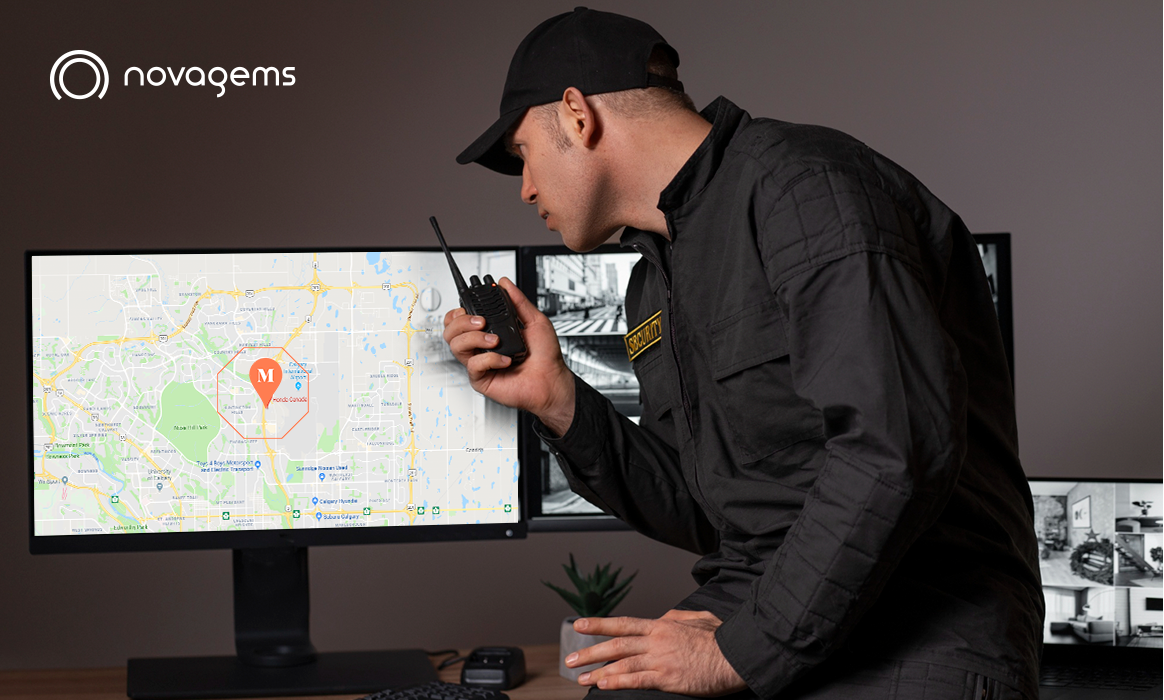
Specialized Tools for Different Guard Roles
Guards serve diverse environments, and their gear should match the task at hand.
Retail Security
- Focus on customer safety and monitoring
- A discreet body cam helps record incidents without upsetting shoppers
- Tactical belt with pen, notepad, and earpiece for smooth communication
Event and Crowd Control
- High-visibility vests for flow management
- Flashlights for nighttime venue safety
- Body cameras and mobile comms to report incidents fast
At large events, dual comms systems improve team responsiveness.
Mobile Patrol
- Reliable flashlights and radios
- GPS-tracking phones with patrol route logs
- Small first aid kits for emergencies
- Vehicle lights and sirens where permitted
GPS systems track patrol hours and sites, improving accountability.
Corporate or Office Security
- Clean ID badge and tidy uniform
- Access control tools, cameras, radio comms
- Incident logging apps on tablets for documentation
Visitor and entry logs are often a contract requirement.
Industrial/Construction Site Guards
- Hard hats, steel-toe boots, high-vis vests
- Radios with extended range
- Flashlight for early or late shifts
- Body cam optional, but site-specific PPE essential
Safety helmets and gear significantly reduce on-site injury risk.
How to Care for Your Security Equipment
Even the best gear fails if it’s not maintained. Here’s a weekly checklist to keep everything working.
Flashlights
- Charge at the end of the shift
- Clean the lens weekly
- Replace batteries per the manufacturer’s recommendation
Radios & Earpieces
- Fully recharge
- Clean mics with alcohol wipes
- Check channels and signal strength daily
Body Cameras
- Download footage daily
- Clean the lens and casing
- Rotate batteries and storage media as needed
Duty Belts and Uniforms
- Hand-wash uniforms weekly
- Air-dry tactical gear
- Repair loose stitching or worn pouches
First Aid & PPE
- Check the kit monthly
- Replenish consumables promptly
- Sanitize gloves after use
- Replace expired items
Pro tips: Keep a maintenance log and rotate gear in the fleet for longevity. Here’s another detailed list that might help.
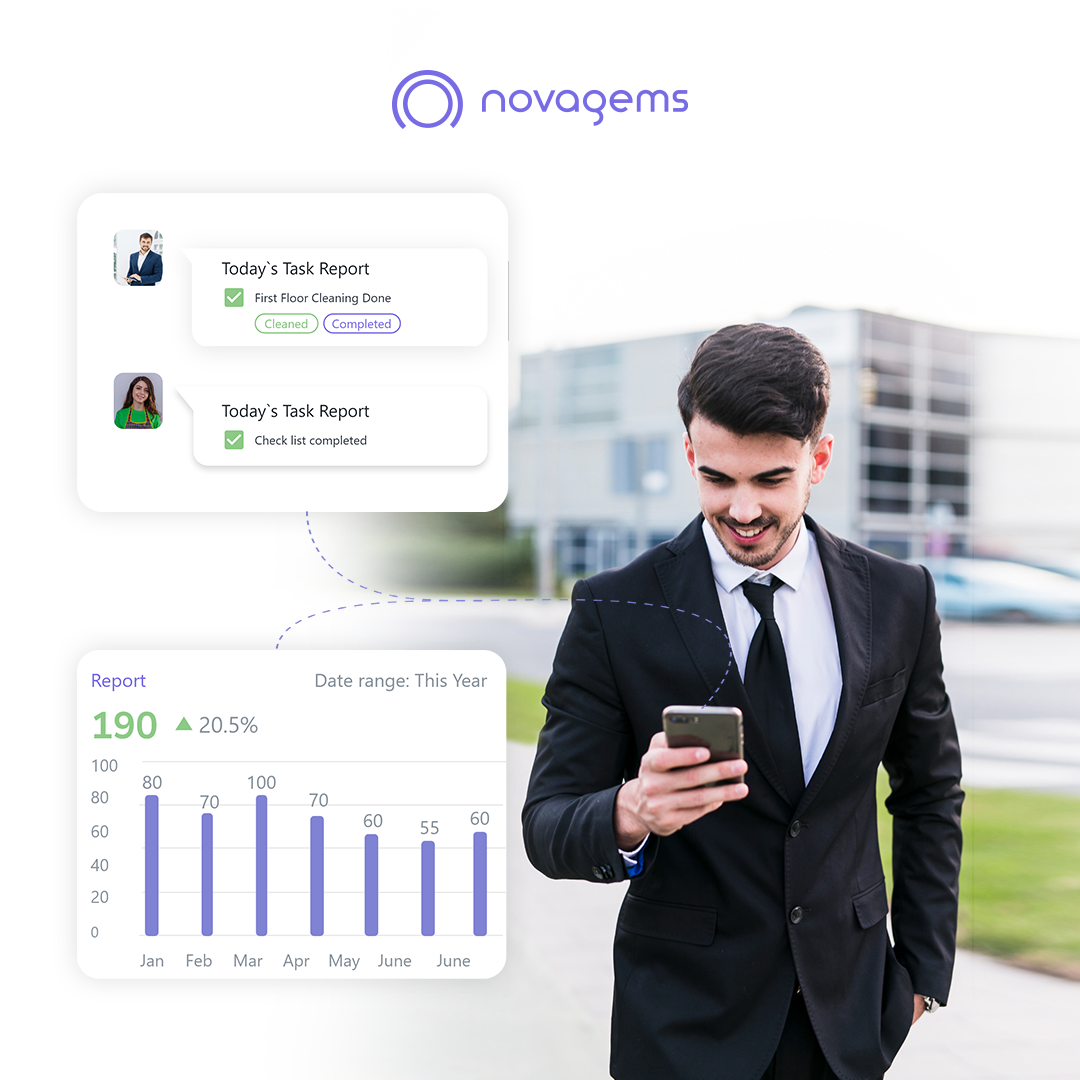
Conclusion
Security guard services play a vital role in maintaining the safety and security of various settings. The effectiveness of these services heavily relies on the equipment that security guards use. The companies become a top choice for the clients when they see the security guards are trained.
Security guard companies should prioritize providing their personnel with the necessary equipment and training. This not only ensures the safety of the guards but also enhances the overall security of the environment they are protecting.
In summary, proper security guard tools and equipment aren’t optional — they’re fundamental to safety, credibility, and effective performance. From everyday basics like flashlights and duty belts to advanced items like body cams and tactical vests, each piece of gear plays a role.
Get a Free Trial
Sign up For Newsletter
Latest Blog Posts
Get Started
Start being productive & grow your business
with Novagems


